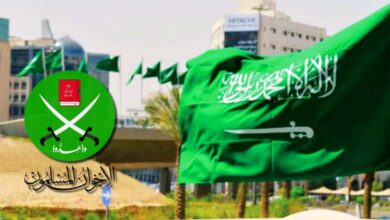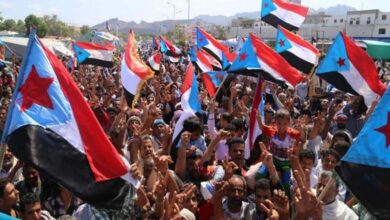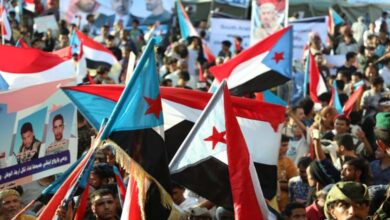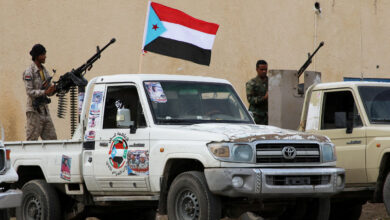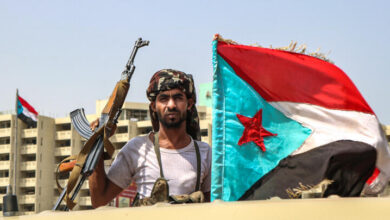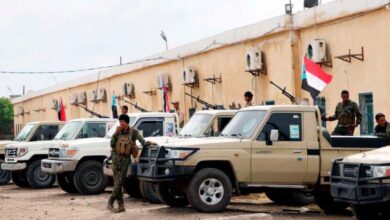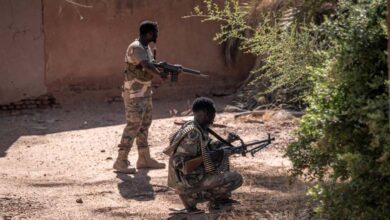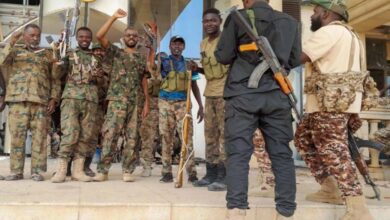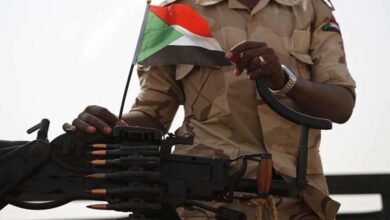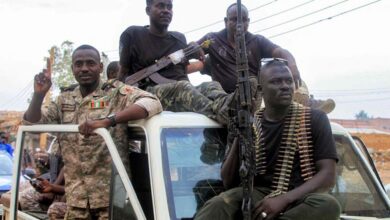After the displacement of more than 6 million Sudanese, calls to classify the Muslim Brotherhood as a terrorist movement have escalated

The demands increased following the American sanctions against one of the prominent leaders of the Islamic movement, “the Brotherhood,” in Sudan, the former Sudanese Foreign Minister Ali Karti, who called for classifying the Sudanese Brotherhood as a terrorist group. A leader of the “Forces for Freedom and Change” insisted on considering the movement a “terrorist group.”
The leader, Shihab Ibrahim, emphasized the classification of the extremist wing of the movement as “terrorist,” accusing it of being involved in igniting the war and persisting in it to protect its interests.
In a statement to the “Middle East” newspaper, the leader called for not just being satisfied with the sanctions imposed on the Secretary-General of the Islamic movement but to classify the movement as a “terrorist group,” without including “all Islamists” in that classification, limiting the “terrorist group” classification to those seeking to disrupt the democratic transition.
On the other hand, the leader of the “Forces for Freedom and Change,” Khalid Omar Youssef, considered these sanctions a confirmation of the involvement of the “third party” in the war that has been going on for 6 months between the army and the “Rapid Support Forces.”
Omar, who served as the Minister of the Cabinet in the government of Prime Minister Abdallah Hamdok, according to a statement he published on his “X” platform account on Friday, stressed that the sanctions targeted, for the first time, a “third party” in addition to the two warring parties, namely the “Islamic Movement,” represented by its current leader, Ali Ahmed Karti. He noted that the sanctions on Thursday confirmed the involvement of elements of the former regime in the catastrophe that is currently afflicting our country.
Karti is accused of inciting the Chief of the Army, General Abdul Fattah Al-Burhan, to embark on a war adventure with the Rapid Support Forces to obstruct the chances of transferring power to civilians, which was about to be achieved.
Sudanese political circles say that the leader of the Islamic movement is one of the main parties that stand in the way of a settlement between the army and the Rapid Support Forces today, prompting the United States to act and impose sanctions on him.
Karti is one of the prominent leaders of the Muslim Brotherhood and served as the Minister of Foreign Affairs between 2010 and 2015 during the rule of the ousted president, Omar al-Bashir.
After the fall of al-Bashir’s regime in Sudan, the Sudanese Public Prosecution ordered Karti’s arrest for his role in the 1989 coup, which brought Bashir to power, and the prosecution said at the time that his assets would be frozen.
Karti remained out of sight in recent years before reappearing two days after the outbreak of the war in Al Jazirah State, with recordings attributed to the leader of the Islamic movement inciting the use of deadly force against the Rapid Support Forces.
The Displacement and evacuation of the Sudanese people
As the war entered its first six months, nearly 6 million people were forced to flee their homes. Approximately 4.5 million people are internally displaced within Sudan, including an estimated 105,000 pregnant women. Over 1.2 million people have sought refuge by fleeing the ongoing fighting to neighboring countries such as the Central African Republic, Chad, Egypt, Ethiopia, and South Sudan. Nearly nine out of every ten displaced persons are women and children.
Exploitation and gender-based violence
Women and girls have struggled to access reproductive health services and life-saving protection. Approximately 80% of hospitals in conflict-affected areas are now out of service. In regions such as Khartoum, Darfur, and Kordofan, less than a third of healthcare facilities are operating at full capacity. All states in Sudan report severe shortages of medicines and supplies, including life-saving maternal health drugs. In neighboring countries, infrastructure and basic services are poor, and the influx of people seeking shelter is exhausting.
Sexual and gender-based violence has had a devastating impact on women and girls, with limited access to protection and support services in Sudan and across borders. The risks of exploitation and sexual assault have increased for women and children living in temporary shelters or overcrowded displacement sites.
The United Nations Population Fund is coordinating efforts with national governments, state governments, and humanitarian partners to enhance support and services needed for reproductive health, prevent and respond to gender-based violence in areas with large numbers of internally displaced persons in Sudan and in reception/displacement sites in neighboring countries. This includes deploying midwives, mobile teams, and supplies to build capacity in maternal health and emergency care, as well as clinical management of rape cases to address the health and protection needs of displaced women and girls.


